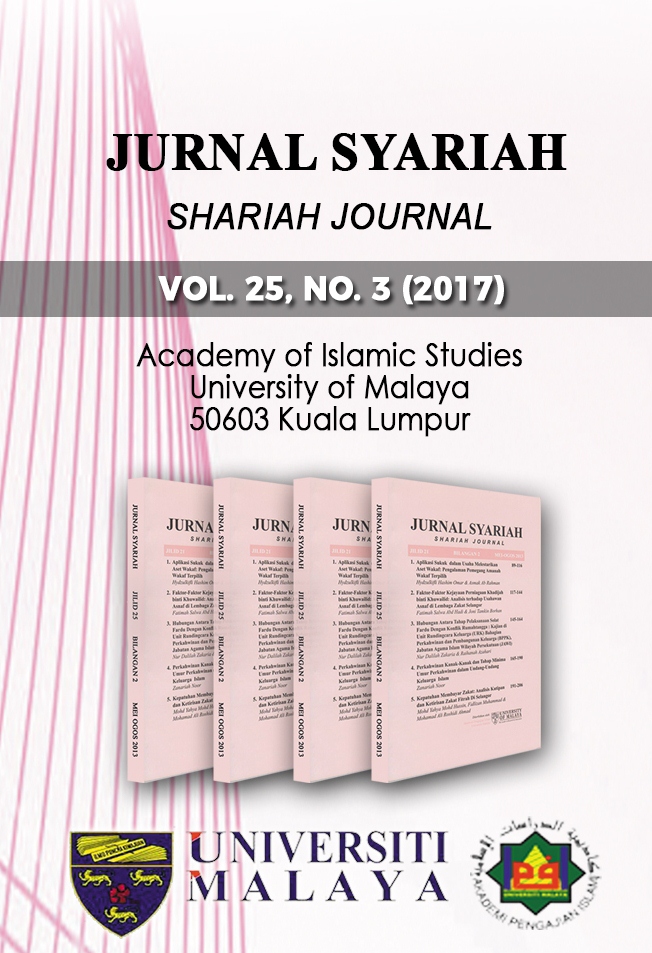ANALISIS PANDANGAN GOLONGAN YANG MENYOKONG DAN MENENTANG PENGGUNAAN TALFIQ DALAM PERUNDANGAN ISLAM
An Analysis on the Views of the Supporters and Opponents in the Usage of Talfīq in Islamic Law
DOI:
https://doi.org/10.22452/js.vol25no3.1Abstract
In the modern world, there are an abundance of problems and issues that have not been discussed by previous Muslim scholars in the field of religious rituals (‘ibādāt), commerce (mu‘āmalāt), family relations (munākaḥāt), crimes (jināyāt), etc. In addressing this current development, contemporary Muslim scholars have adopted various methods for solving these particular problems and issues. Among those methods employed include combining the views of previous scholars of the various madhhabs, commonly referred to as talfīq. Indeed, the issue of talfīq still invites debate among those who support and oppose this concept. This study has analysed the views of the various scholars on these issues by looking in depth at the arguments by who agree and disagree on the usage of talfīq. The finding of this study indicates that the explanations used by both sides were strong in supporting their views although there is still rooms for criticism. Therefore the researcher has choosen a neutral and cautious (iḥtiyāṭ) stance by stating that the usage of talfīq is permissible only at the final stage whereby the solution in a particular madhhab is not able to provide the best possible solutions in overcoming the difficulties faced by the community.
Downloads
Downloads
Published
How to Cite
Issue
Section
License

This work is licensed under a Creative Commons Attribution-NonCommercial 4.0 International License.
COPYRIGHT: All rights reserved. Not allowed to be reproduced any part of articles and contents of this journal in any form or by any way, whether electronic, mechanical, photocopying, recording or otherwise without permission in writing from the Chief Editor, Jurnal Syariah.











